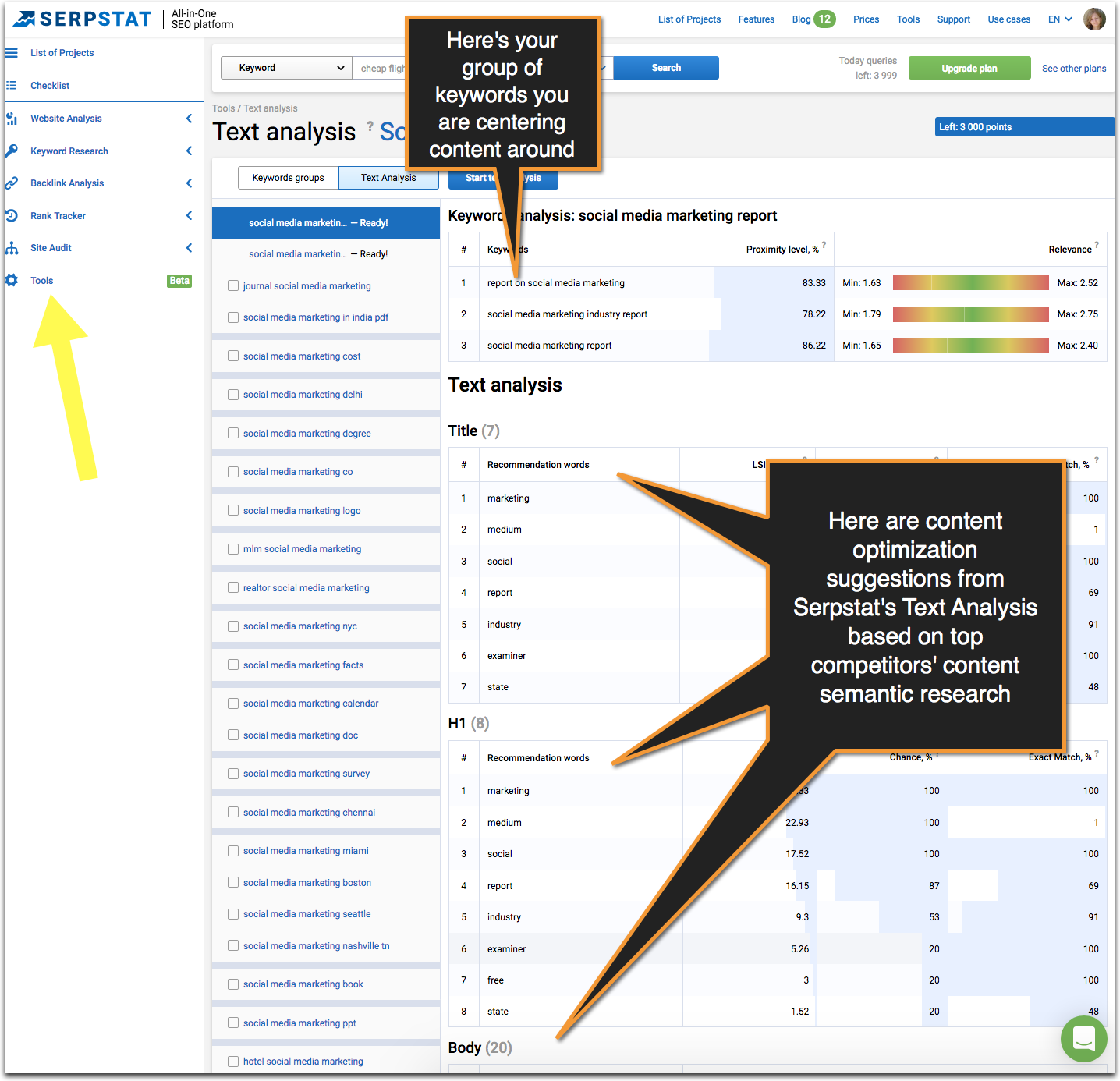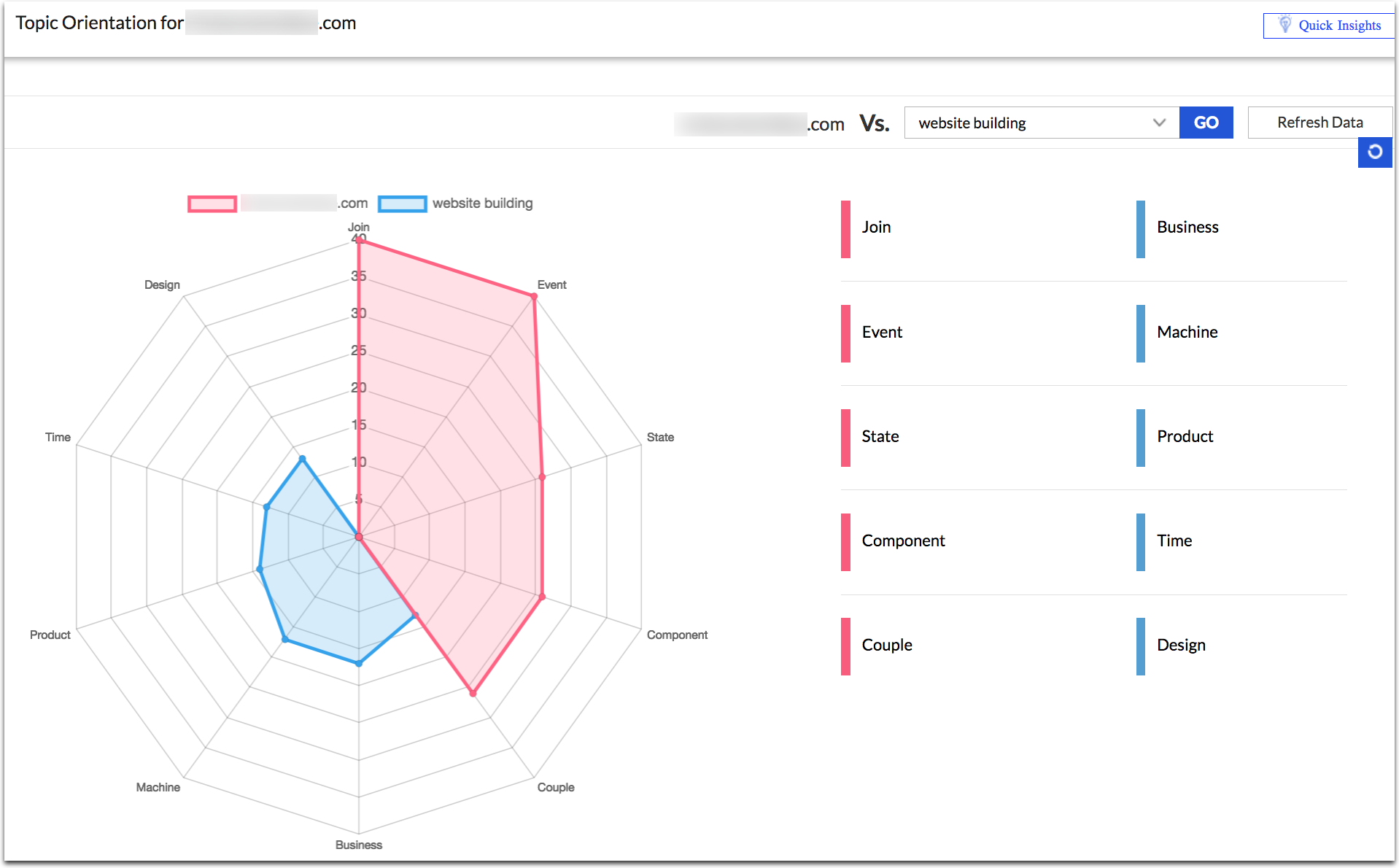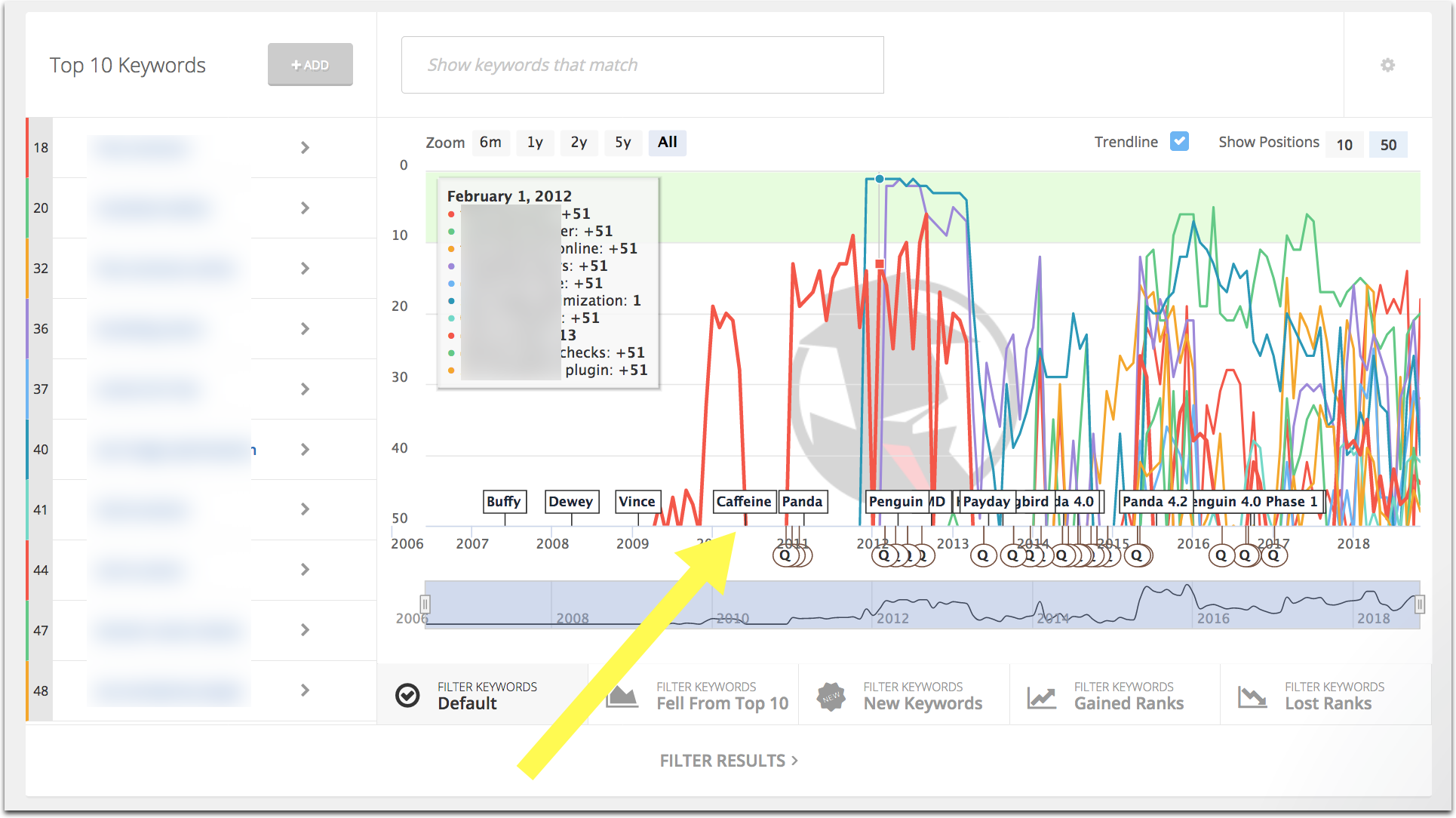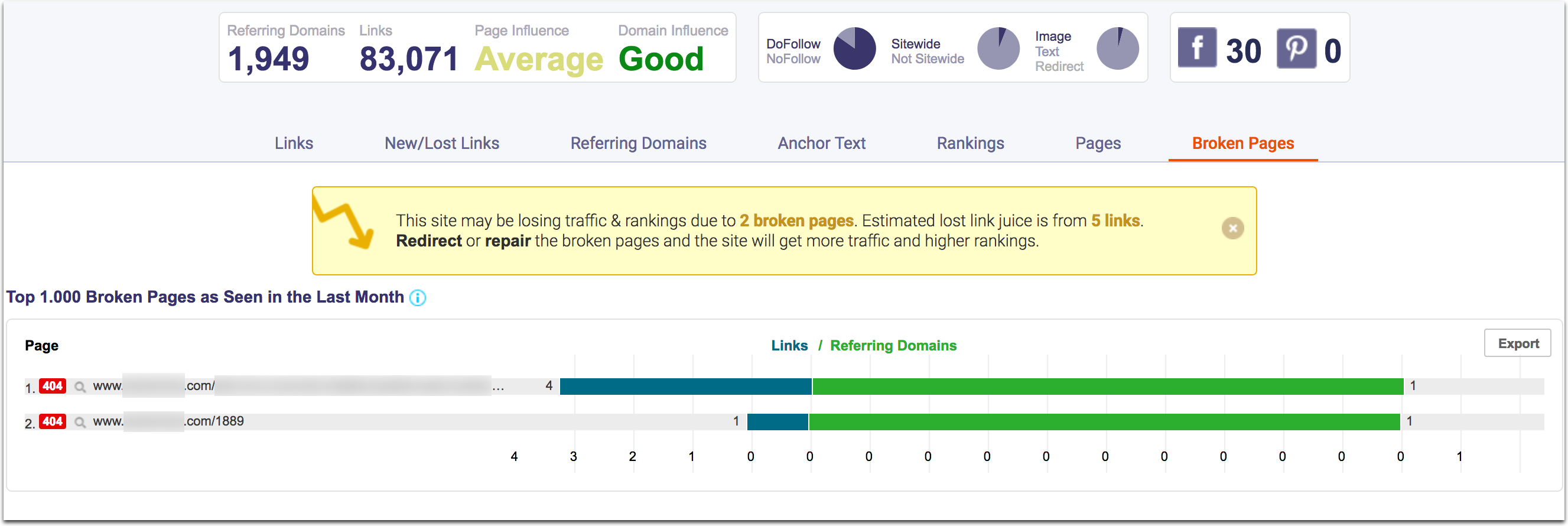Let me start by saying I love SEMrush and Ahrefs. I use them both on a daily basis and cannot imagine my life without them.
Through their awesome technology and studies, the two tools have contributed an impressive amount of value to SEO community. If you are already using the tools, by all means keep them!
Why then explore alternatives to SEMrush and Ahrefs?
Well, I have two strong arguments behind this article:
- You can never have enough of SEO research tools: Each of them adds something unique and different to the analysis process. Sometimes, when I am stuck, all I need to do is to try a new tool. Either through a fresh layout or an innovative feature (more on this below), I am always able to discover new solutions to old and new SEO problems.
- Competition drives innovation. And there’s no shortage of both in the SEO niche, thankfully. Thanks to the following strong emerging or re-developed solutions, our industry is getting smarter. That’s been amazing to watch and that’s something I am going to highlight below:
1. Serpstat
Serpstat is one of the most successful newcomers in the SEO industry. It was introduced just a couple of years ago and already has a strong community of raving supporters (including yours truly)
Let’s take a quick look at standard SEO competitive intelligence features they are offering:
- SERP analytics (Keyword Explorer): Yes (Check out the variety of filters allowing to drill down the results)
- Ranking monitoring: Yes
- Backlink analysis + monitoring: Yes
- Content gap analysis (Domain vs Domain): Yes
- Content gap analysis (URL vs URL): Yes
- Top pages: Yes
- Multi-language support: Yes
Serpstats’ best unique feature you’ll love: Text Analytics
Text Analytics is the smart extension of Serpstat’s keyword clustering feature which I talked about earlier. It analyzes your competitor’s content for your given query and returns some on-page content recommendations for you to implement:

The important thing here is, Serpstat advises against keyword density or exact-matching. It uses semantic analysis to thoroughly analyze competing content and transforms the analysis into actionable recommendations for your writing team to follow.
2. Rankedy
Rankedy is one of the newest SEO suites out there (I think it may still be in private beta) but I strongly suggest going and requesting your trial. I am sure they are up to something really unique. They are not trying to offer competing solutions but instead working on something completely unique: applying machine learning to many standard SEO analyses they offer.
They are building some competitive intelligence features:
- SERP analytics (Keyword Explorer): Partial
- Ranking monitoring: Yes (With very cool email alerts, also with mobile ranking monitoring)
- Backlink analysis + monitoring: Coming soon
- Content gap analysis (Domain vs Domain): Yes
- Content gap analysis (URL vs URL): No
- Top pages: No
- Multi-language support: Yes
Rankedy’s best unique feature you’ll love: Topic Orientation
I’ve never seen this done before, so I was very intrigued to try. The tool grabs the top 100 competing domains ranking for your core queries, analyzes their content and compares it to yours. It then shows how well you did matching the topic classifications (and which areas yours needs improvement).
The goal is that your content overlaps with your competitors’ content in core concepts Rankedy has identified for you. Otherwise it may be mismatched (and it must be the reason why your page gets over-ranked).

[Example: Rankedy took the query [website building], fetched content of my top competitors, classified it and found that my competitors’ top-ranking content includes the following classes “Business”, “Machine”, “Product” and “Design.” My site content matched nothing of those, so my landing page content needs work]
I think it’s a very fresh look at competitive analysis. That’s definitely a tool to look out for.
3. SpyFu
Spyfu is one of the oldest multi-feature SEO solutions out there. Its PPC analysis is probably the smartest in the industry and it’s very well set up. Let’s go through our standard list of features:
- SERP analytics (Keyword Explorer): Yes
- Ranking monitoring: Yes (SpyFu “Ranking History” saves the snapshot of rankings for best and lost ranks)
- Backlink analysis + monitoring: Yes
- Content gap analysis (Domain vs Domain): Yes
- Content gap analysis (URL vs URL): No
- Top pages: No
- Multi-language support: No (SpyFu supports only US and UK)
SpyFu’s best unique feature you’ll love: Organic Ranking History
SpyFu’s Organic Ranking History is my favorite way to explore any organic query. It gives you a graphical representation of what Google organic SERPs looked like for any given domain (e.g. your competitor):
- See its new keywords
- See its lost rankings
- See which queries it fell from top 10 for, etc.
All of that overlaid by various Google updates which could have accounted for the ranking change.
Some domains are being tracked as far back as ~2008 – this is an incredible amount of data!

Check out their other project that will likely blow your mind: Nacho Analytics
4. CognitiveSEO
Just a few weeks ago CognitiveSEO has re-launched its Site Audit tool and the SEO community couldn’t have been happier.
I am not yet as familiar with the new suite as well I’d like to be (as it’s pretty new) but it looks awesome so far:
- SERP analytics (Keyword Explorer): Yes
- Ranking monitoring: Yes
- Backlink analysis + monitoring: Yes
- Content gap analysis (Domain vs Domain): No
- Content gap analysis (URL vs URL): No
- Top pages: Yes (+Most linked to + shared pages)
- Multi-language support: Yes
CognitiveSEO’s best unique feature you’ll love: Broken links research
Broken link building research has never been easier: Type in your competitor’s domain and click through “Broken Pages” tab. The tool will show you the list of your competitor’s pages that receive backlinks. Now all you need to do is build a better page and go fix those links to direct them to your site.

Sneaky? Maybe but totally ethical and even valuable (I like to think of broken link building as fixing the web!)
Ahrefs and SEMrush alternatives at a glance:
|
Ahrefs and SEMrush alternatives
|
Cost /m | Competitive Intelligence Features | Cool innovative feature | |||||
| KWD Expl* | Rank Mon | Link Mon | D vs D | URL vs URL | Top Pgs | |||
|
Serpstat |
$69 | Yes | Yes | Yes | Yes | Yes | Yes | Clustering + Text Analysis |
|
Rankedy |
~$7 | Partial | Yes | Soon | Yes | No | No | Topic Orientation |
|
SpyFu |
$39 | Yes | Yes | Yes | Yes | No | No | Organic Ranking History |
|
Cognitive SEO |
~$130 | Yes | Yes | Yes | No | No | Yes | Broken Pages |
Notes:
- *SERPs Analytics (Keyword Explorer) is a bit different from platform (going back to my point that each tool brings something new to the point). For example, some platforms offer “Keyword difficulty” metric to help you estimate competition, some try and calculate “relevancy”, some focus on keyword extension to help you find lower-competitive queries (here are the basics of how that works), and some let you use filters to research SERP features. They all do offer free trials, so go ahead and pick your favorite SERP analytics.
- This article focuses on competitive intelligence, i.e. tools that help you analyze and learn from your competition to outperform it. But each platform above has something else to offer, beyond competition research, e.g. site auditing, site health monitoring, and more. So again, make sure to play with all the features!
Which innovative Ahrefs and SEMrush alternative did I miss? Let’s promote SEO innovation!
Also, check out my other comparison of keyword research APIs.
The post 4 Ahrefs and SEMrush alternatives that bring innovation to competitive analysis appeared first on Search Engine Watch.
from Search Engine Watch http://bit.ly/2SxddR7



No comments:
Post a Comment